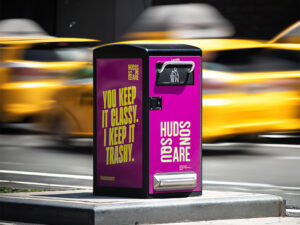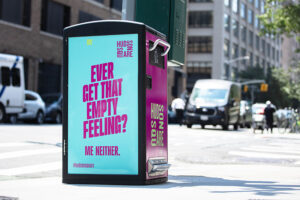Solar-powered waste bins are compacting trash, saving money, and reducing carbon pollution.
After you drop your garbage in a public trash can, it’s usually picked up by a garbage truck that gets less than three miles per gallon. And most times, the trash cans are not even full.
Philadelphia is trying to cut its carbon pollution and cut costs too. When the Streets Department realized its garbage collection methods were, well, wasteful, the city called in… Bigbelly.
A Bigbelly garbage can has an automatic trash compactor inside, allowing it to hold five times more waste than a regular can.
And when a Bigbelly can hold no more, it transmits a wireless signal to the garbage collectors, telling them it’s time to make a pick-up. What’s more, all the power needed for Bigbelly to compact trash and communicate comes from solar panels on the top.
Philadelphia has installed a thousand Bigbelly trash cans, and the savings have been nothing short of spectacular.
CARLTON: “We went from seventeen times a week in the Center City downtown area to only needing three collections per week.”
That’s Donald Carlton, Deputy Commissioner of Philadelphia’s Streets Department. He says his Department has saved millions of dollars and dramatically reduced its emissions. Now in more than 1,500 cities, Big Bellies prove that even trash cans can be smart.
Reporting credit: ChavoBart Digital Media
Source: Yale Climate Connections, by Bud Ward



